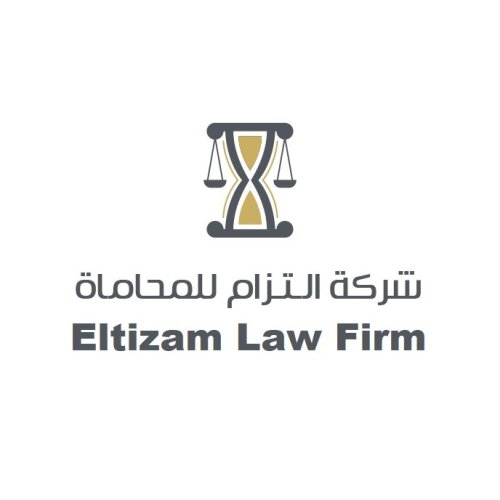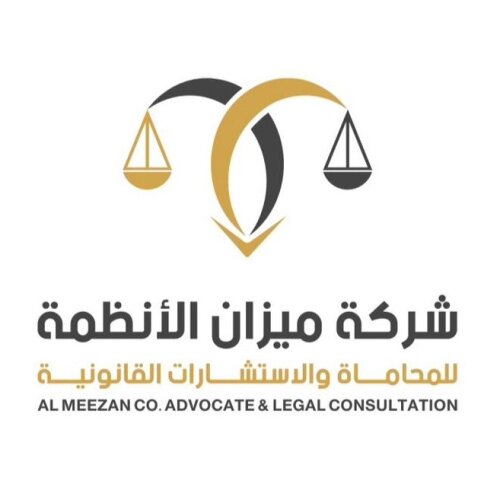
Best Inheritance Law Lawyers in Saudi Arabia
Share your needs with us, get contacted by law firms.
Free. Takes 2 min.
Or refine your search by selecting a city:
List of the best lawyers in Saudi Arabia

1. About Inheritance Law in Saudi Arabia
Inheritance law in Saudi Arabia is grounded in Sharia, applied by Saudi courts and authorities. The rules primarily rely on fixed shares for specific heirs, known in Islamic jurisprudence as farāʾid. When a person dies, the estate is distributed according to these prescribed shares, with the remaining portion often allocated to residuary heirs or to be left to bequest if permitted by law.
In practice, the process involves verifying the deceased's assets, identifying legal heirs, and ensuring the distribution matches Islamic rules as interpreted by Saudi judges. Adoption does not grant automatic inheritance rights in Saudi law, and bequests (wasiyah) are typically limited to up to one third of the estate for non-heirs unless all heirs agree otherwise. These principles are implemented through the Kingdom's courts and administrative processes.
Key terms you may encounter include faraʾid (fixed shares), ashabah (residuary heirs), and wasiyah (will or bequest). Understanding these concepts helps clarify how property is allocated among spouses, children, parents, and other relatives after death.
Source: Ministry of Justice - Inheritance and Will guidance for the Saudi legal system
Source: GOV.SA official portal - general information on inheritance and legal processes in Saudi Arabia
2. Why You May Need a Lawyer
Saudi inheritance cases often involve complex family structures, multiple properties, and cross-border assets. A lawyer can navigate the nuances of Sharia-based distribution and court procedure to protect your rights as an heir or executor.
- You are contesting fixed shares when there are multiple wives, children from different spouses, or unclear parentage. A solicitor can map out exact shares and prepare required filings with the court.
- You want to execute a will (wasiyah) properly to provide for a non-heir beneficiary while staying within the one-third limit. Legal counsel can draft and validate the will in line with Saudi practice.
- The estate includes real estate in different regions or abroad. A lawyer can coordinate probate filings, property transfers, and cross-jurisdictional documentation.
- There is a missing heir or a potential dispute about eligibility. A solicitor can gather evidence, petitions, and witness statements for court resolution.
- You need to appoint an administrator or executor for the estate. Saudi courts often appoint a trusted solicitor as administrator to ensure orderly distribution.
- You want to protect a surviving spouse or dependent relatives with appropriate shares and ensure debts are settled before distribution. A legal adviser can structure a proper settlement plan.
Working with a qualified inheritance lawyer helps reduce delays, ensures compliance with Sharia-based rules, and minimizes the risk of contested distributions and appeals.
3. Local Laws Overview
Saudi inheritance matters rely on Sharia principles, which are implemented through national courts and administrative processes. While the core framework is Sharia, several binding instruments shape how procedures are carried out in practice.
- In Saudi Arabia, Sharia (Islamic law) is the basis for civil and family matters, including inheritance. The Basic Law of Governance affirms that Islamic law governs state legitimacy and judicial interpretation.
- A will may be used to allocate up to one third of the estate to non-heirs, provided it does not infringe fixed shares. This is implemented through court validation and estate administration.
- Fixed shares apply to specific relatives (for example spouses, parents, and children). The remainder may go to residuary heirs when fixed shares do not exhaust the estate.
Recent trends include increasing emphasis on clear documentation for cross-border assets and digital submission options through government portals. For example, the Saudi government has expanded online services related to civil and inheritance matters to streamline probate procedures.
Source: Shura Council and Ministry of Justice guidance on inheritance concepts and procedural practice
4. Frequently Asked Questions
What is the basic idea of faraʾid in Saudi inheritance?
Faraʾid sets fixed shares for certain heirs, such as spouses, parents, and children. The distribution follows Qur'anic fractions interpreted by Saudi courts.
How do I prove my relation to the deceased for inheritance?
Gather official documents showing lineage and status, such as birth certificates and family records, and present them to the court or MOJ registry handling probate.
What is Wasiyah and how much can I bequeath?
Wasiyah is a will for non-heirs. It can allocate up to one third of the estate, subject to fixed shares for eligible heirs.
When should I hire an inheritance lawyer in Saudi Arabia?
Start with a lawyer if you anticipate disputes, own assets in multiple regions, or must navigate cross-border probate or a contested will.
Where do I file for probate or estate distribution?
Probate filings typically go to the Saudi court having jurisdiction over the deceased’s last residence or the location of real estate assets.
Why would a court appoint an administrator for the estate?
When there is no clear executor, or if heirs disagree, the court may appoint an administrator to ensure orderly and lawful distribution of assets.
Can a will override fixed shares in Saudi Arabia?
No. A will cannot override fixed shares for heirs. It may allocate up to one third of the estate to non-heirs.
Should I include foreign assets in the Saudi probate process?
Yes. Cross-border assets often require cooperation with foreign authorities and may need additional documentation.
Do I need a local lawyer or can I hire someone abroad?
For enforceable outcomes in Saudi courts, hire a Saudi-licensed lawyer who understands local practice, procedures, and language.
Is there a timeline for inheritance cases in Saudi courts?
Timeline varies by complexity, but straightforward cases may take several months, with longer timelines for disputes or cross-border assets.
How much do inheritance-related legal services cost?
Fees depend on case complexity, property volume, and dispute risk. Ask for a written fee estimate and possible hourly rates or fixed fees.
5. Additional Resources
- Ministry of Justice (MOJ) - Saudi Arabia - Official government portal providing guidance on civil procedures, probate, and court filings. https://www.moj.gov.sa
- GOV.SA - The official Saudi government portal with information on laws, e-services, and judicial processes, including inheritance-related matters. https://www.gov.sa
- Shura Council - Legislative advisory body providing clear guidance on foundational legal principles applied in the judiciary. https://www.shura.gov.sa
6. Next Steps
- Identify the exact role you have in the estate (heir, spouse, executor, or administrator) and determine if you need representation.
- Gather essential documents: death certificate, family tree, ownership records, wills, and property deeds. Prepare a timeline of assets and debts.
- Consult a Saudi-licensed inheritance solicitor to assess eligibility, potential disputes, and required filings. Request a scope of work and fee estimate.
- Choose a lawyer with proven experience in faraʾid, wills, and probate matters in Saudi courts. Verify credentials and ask for client references.
- Prepare and file the necessary probate or estate-distribution petitions with the appropriate court, including any cross-border documentation.
- Attend hearings and provide requested evidence promptly. Monitor the case timeline and respond to court requests within stated deadlines.
- Review the final distribution plan, ensure compliance with fixed shares, and obtain court confirmation of estate transfer to heirs or beneficiaries.
Lawzana helps you find the best lawyers and law firms in Saudi Arabia through a curated and pre-screened list of qualified legal professionals. Our platform offers rankings and detailed profiles of attorneys and law firms, allowing you to compare based on practice areas, including Inheritance Law, experience, and client feedback.
Each profile includes a description of the firm's areas of practice, client reviews, team members and partners, year of establishment, spoken languages, office locations, contact information, social media presence, and any published articles or resources. Most firms on our platform speak English and are experienced in both local and international legal matters.
Get a quote from top-rated law firms in Saudi Arabia — quickly, securely, and without unnecessary hassle.
Disclaimer:
The information provided on this page is for general informational purposes only and does not constitute legal advice. While we strive to ensure the accuracy and relevance of the content, legal information may change over time, and interpretations of the law can vary. You should always consult with a qualified legal professional for advice specific to your situation.
We disclaim all liability for actions taken or not taken based on the content of this page. If you believe any information is incorrect or outdated, please contact us, and we will review and update it where appropriate.
Browse inheritance law law firms by city in Saudi Arabia
Refine your search by selecting a city.














